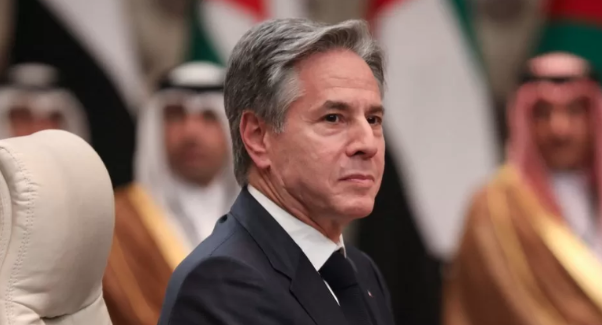Israel
Modern Israel War Shadows Middle East Amid Conflict

As the echoes of ancient caravans fade into the background, the Israel war casts a long shadow over the present-day Middle East, with violence flaring anew across the Gaza-Israel expanse. Amidst the hushed corridors of power in Amman, where the language of diplomacy struggles to quell the sound of artillery, the skies over Gaza bear witness to an ongoing saga of strife. This relentless cycle of conflict continues to carve its grim chapter into the annals of history, underscoring the persistent and haunting quest for a peace that remains tantalizingly out of reach.
The scene, a harrowing tableau of destruction, is all too familiar: Israel, locking horns with Hamas, with the United States’ diplomacy waltzing a delicate dance to the discordant tune of war. U.S. Secretary of State Antony Blinken, amidst a torrent of accusations and the clamor for a ceasefire, posits a harrowing caveat: a cessation, he suggests, would merely serve as an intermission for Hamas to gather its forces.
The storied lands of the Levant, cradle of civilizations, now bear witness to the tragic march of modern warfare, where the distinction between aggressor and aggrieved blurs beneath the shadow of drones and the scream of rockets.
The echoes of ancient empires reverberate through the corridors of power, where Blinken, in the company of Jordan’s Foreign Minister Ayman Safadi and a conclave of Arab dignitaries, treads a path fraught with the diplomatic landmines of a region where war crimes are a haunting specter, and the quest for peace a Sisyphean ordeal.
The United States’ narrative is one of staunch support for Israel’s self-defensive posture against Hamas, an organization they designate as a terrorist group, despite Jordan’s vociferous denial of such a framing. The conflict is painted with the broad brushstrokes of civilian anguish, a “raging war” as Safadi laments, that razes homes, hospitals, and holy sites to the ground.
The present-day siege, a tableau reminiscent of ancient sieges of yore, sees Israel accused of stifling Gaza’s lifelines — power, food, water — all severed in a modern-day act of blockade. Meanwhile, over 9,000 Gazan lives have been extinguished, a testament to the brutality of the conflict as reported by the Hamas-run health ministry, an authority whose narratives are as contested as the land they claim.
Blinken’s odyssey through the Middle East does not pause at the Jordan River. His words, laden with the gravity of American influence, call for more than a transient pause but a substantial increase in aid through Egypt’s Rafah crossing — a lifeline for a beleaguered people.
This tale of two borders — Rafah and Gaza — speaks to a broader theme: the age-old struggle between the sanctity of national borders and the relentless tide of human suffering. It speaks to the international community’s relentless pursuit to throw open the gates of mercy amidst the relentless thunder of guns.
And yet, as David Satterfield, the U.S. special envoy, underscores, hundreds of thousands remain imperiled in Gaza’s north, their fate hanging by the thread of ceaseless hostilities. The United Nations’ warnings fall like leaden rain upon the ears of the weary, pronouncing no corner of Gaza safe from the scourge of conflict.
Amid this modern-day exodus, Lebanon’s precarious peace is also scrutinized under Blinken’s gaze. The specter of Hezbollah’s rockets looms large, a constant threat to Israel’s security, as Lebanon’s caretaker Prime Minister Najib Mikati seeks counsel in the labyrinth of Middle Eastern politics.
The narrative of conflict, one that extends beyond the immediate battleground, draws in Turkey as well. Ankara’s strained relations with Israel, amidst recalled ambassadors and severed communications, become yet another thread in the region’s intricate tapestry of tensions.
As Blinken prepares to converse with Turkey’s President Recep Tayyip Erdogan, one ponders the potential for these dialogues to either dampen or fan the flames of strife. The path forward, as history teaches, is one fraught with the detritus of old grievances and the unpredictability of modern alliances.
In closing, the question that looms large is one of peace — can it be more than a mere mirage in the unforgiving desert of Middle Eastern politics? As the world’s eyes turn to Egypt, Jordan, and beyond, searching for the wisps of diplomatic progress, the lands that once bore witness to the march of Alexander and the spread of empires now stand at the crossroads of a new epoch.
Will this chapter too be written in the ink of suffering, or can the parchments of history finally record the elusive symphony of peace? Only time, with its impartial stride, will reveal the answer, leaving those who tread upon this ancient earth to ponder the weight of history and the possibility of a future born from the ashes of the past.












You must be logged in to post a comment Login